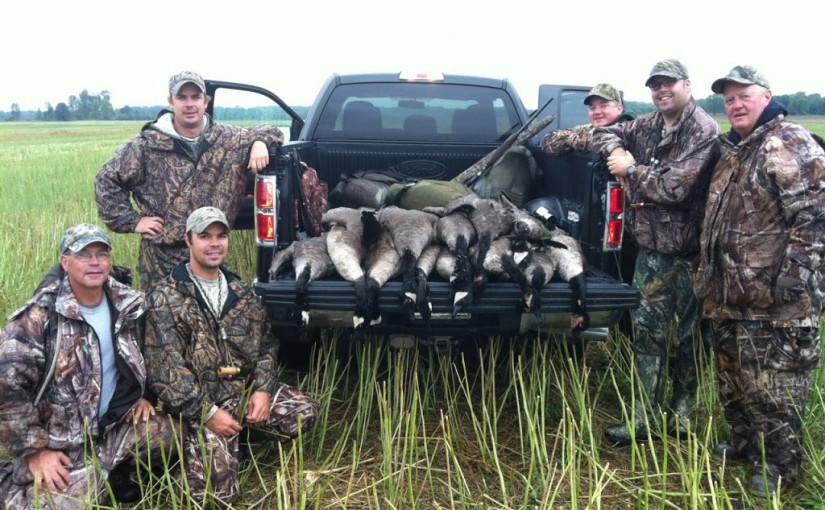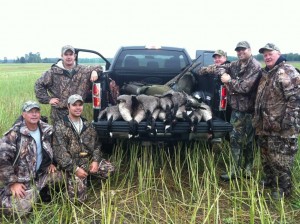Every year I create a checklist of the gear, clothing and goodies I need to pack for deer season, and just today I put the finishing touches on the 2013 edition of that document. It is a seasonal task that I look forward to far more than I do to other fall tasks such as raking leaves, preparing the yard for winter, and putting ice-scrapers in my car.
You see, the list means deer season is imminent. All the other jobs just mean winter is coming.
This year I left something off the list that has been on it for several previous years, and it is part experiment, part reactionary protest on my behalf that I’m leaving it off. This year, I have sworn not to use any scents or scent control products at all.
And here’s why.
I am a historian by training, and even if I wasn’t I am a firm believer in the empirical value of history. That is to say that history is as good as an indicator of future results than anything else I have observed. And history tells me that scent control products don’t have a significant effect on success. All the scent control peddlers will of course tell you otherwise, but another trait of mine is a healthy skepticism of any institution or individual looking to ‘sell’ you something. After all, they have a vested interest in having you purchase their product and may take to wild assumptions and promises to sway you to their financial benefit.
But enough of the proselytizing on my part; here’s the (strictly personal and empirical) evidence as I can present it.
Every son probably has some degree of hero worship for his father, but I am not exaggerating to state that my dear old dad has been a veritable deer assassin in his life. Scores of deer have met their demise at the end of his rifle, and a good many of them sported nice headgear. Several of those could be described as “mature” bucks…you know, the kind that, according to our friends in the scent control industry, are so hard to kill that some sort of “nasal confusion device “ or other olfactory trick would be required to give us mere mortals an upper hand. That Dad kills deer is a fact (and one that is not without jealous derision in our deer camp), and here is another fact. My Dad utilizes exactly zero scent control outside of hunting the wind correctly, and even that is sometimes impossible given the wind’s fickle nature. Likewise I can honestly say that I haven’t seen him use a deer scent lure in the nearly two decades that I’ve been deer hunting with him. Dad’s coat regularly hangs next to the camp cookstove, or from a beam adjacent to the dining room table. It isn‘t just my Dad either. Both of my uncles are accomplished deer slayers, and my one uncle shot a 150-160 class buck wearing a coat that regularly hung to dry above the same cookstove where we cooked bacon daily. Not an ounce of scent dispersion technology in that jacket, and yet here we are. I’ve hunted with men who smelled like distilleries when they woke up, and they shot deer. I know others who smoke cigars on stand, and they shoot deer as well. Ditto the guys with wretched coffee breath and the men who sit in trucks that smell like wet dogs and cheese on the drive to their deer stand.
My only logical conclusion to these observed facts is that deer like (or at the very least aren’t offended by) the smell of people-food, retrievers, whiskey, and fine Cuban cigars. All of which seems perfectly natural in my opinion.
Another interesting fact that I uncovered in researching this post was that for decades (maybe even centuries!) deer hunters managed to kill deer without dousing themselves in synthetic attractants, carbon-based odour elimination sprays, or impregnating their undergarments with charcoal. Shocking, I know, but not nearly as shocking as the willful ignorance of this fact by scads of deer hunters globally.
I’m put in mind of a scene that would be patently absurd if what was a joke, but is all the more ridiculous in that the participants were so gravely serious. Just recently I watched an interesting hunting episode on television (I won’t name the show, since I find their production model and hunting practices generally offensive) where a group of ‘hunters’ to use the term loosely essentially drove around an enormous ranch in a truck, where upon sighting a suitable buck would shoot said deer from the modified platform on top of the vehicle, typically from distances of 500 yards or more. Every one of these mighty hunters wore their scent-control impregnated jackets proudly, and a prominent company that specializes in those garments was a key sponsor to the show. And having related that, I’d now like to pose the following questions.
First, how in the world could a deer smell a hunter at such extended distances? How bad do you have to smell that a deer can smell you from nearly half-a-mile away?
Second, and perhaps more importantly, did the scent-control technology also mask the exhaust smell from the noticeably idling truck that the hunters were sitting upon?
Now let me admit openly that I’m not a very good deer hunter. I have difficulty sitting still, I don’t stalk through the woods in a particularly quiet manner, and I’m not that proficient with a rifle (I prefer the embedded forgiveness that shotgunning waterfowl affords me), so I can assure you that this is not some means for me to make myself feel better about my own failings; I claim full ownership of those. But even a deer hunter as inept as I am somehow has managed to kill a handful of deer, all without the aid of any scent control sprays or products.
Now I’m not lambasting scent control at large. I’m sure for the close quarters of bow hunting that a lack of scent control becomes a serious impediment to success. I have no doubts at all about the power of a deer’s sense of smell either, and I have no doubts that lures and attractants can be effective tools. What I’m objecting to in this little tirade is the lockstep and unquestioned belief that a soaking in sprays, additives, and specially formulated laundry detergents is a prerequisite to successful deer hunting (and I’m not even mentioning those special sort of deer hunters that keep their equipment in sanitized bags full of moss, dirt, and doe urine or mock scrape juice…those are pathological signs of mental illness if you ask me).
I’m also not some crank throwback advocating the removal of science and technology from deer hunting; I am just fine with reasonably powered optics, waterproof materials in my coats and boots, and precision shooting rifles. Go ahead and use your scent control, but have no illusions about what is doing either. I’ve worn it in the past and had deer wind me, and I’ve shot the few deer I have without having lathered any of it on my person.
So this year, I’m going with my own musky, natural odour in the woods. With maybe just a hint of bacon grease splashed on as well, for luck. We’ll see how it turns out.


